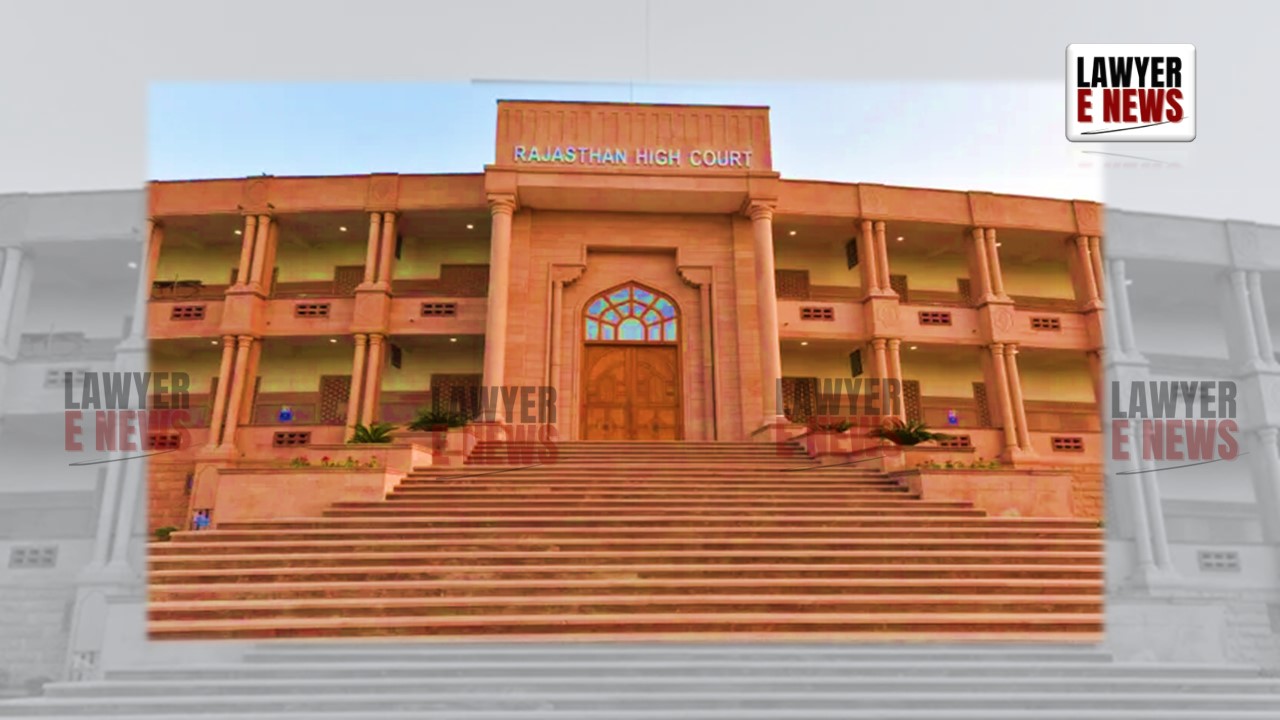-
by Admin
15 February 2026 5:35 AM



High Court affirms the trial court’s order, emphasizing that the addition of serious charges justifies the revocation of bail under Section 439(2) Cr.P.C.
The Rajasthan High Court has dismissed a petition challenging the cancellation of bail granted to an accused in a case involving the murder of one Santosh @ Sanjay. The court upheld the trial court’s decision, emphasizing that the subsequent addition of non-bailable offences, including charges under Sections 302 and 120B of the IPC, justified the revocation of bail under Section 439(2) Cr.P.C.
The case originated from the disappearance of Ramdayal Meena, reported by his wife Asha Devi. During the investigation, the police discovered a body, later identified as Santosh @ Sanjay, leading to the registration of an FIR under various sections, including murder (Section 302 IPC) and conspiracy (Section 120B IPC). The petitioner, Dayaram, along with others, was initially arrested for lesser charges under Sections 323 and 342 IPC and was granted bail on March 7, 2024. However, upon the discovery of new evidence, including call records and transactions, more serious charges were added, prompting the cancellation of his bail.
The court noted that the initial bail order contained a specific caveat, allowing for the cancellation of bail if more serious charges were subsequently added. The High Court referenced multiple precedents, including the Supreme Court’s decision in Pradeep Ram vs. State of Jharkhand, to affirm that the addition of graver, non-bailable offences justifies taking the accused back into custody.
The High Court underscored that the trial court acted within its rights under Section 439(2) Cr.P.C. by canceling bail after the emergence of significant new evidence, including call location data and financial transactions linked to the accused, which suggested his deeper involvement in the crime. The court stressed that the investigation’s findings warranted the addition of non-bailable charges, thereby justifying the bail revocation.
In the judgment, Justice Sameer Jain remarked, “The order dated 07.03.2024 categorically states a caveat whereby, the accused-petitioner ought to be arrested or taken back into custody by the police authorities, upon subsequent findings in the matter.” This quote highlights the conditional nature of the bail initially granted and the legal rationale for its subsequent cancellation.
The Rajasthan High Court’s ruling reinforces the principle that bail can be revoked when more serious offences come to light during an ongoing investigation. This decision serves as a reminder of the judiciary’s commitment to ensuring that justice prevails, especially in cases involving severe criminal charges. The court’s reliance on established legal precedents further solidifies the judgment’s standing, potentially impacting future cases where the addition of graver charges necessitates reconsideration of bail.
Date of Decision: August 30, 2024
Dayaram vs. State of Rajasthan
